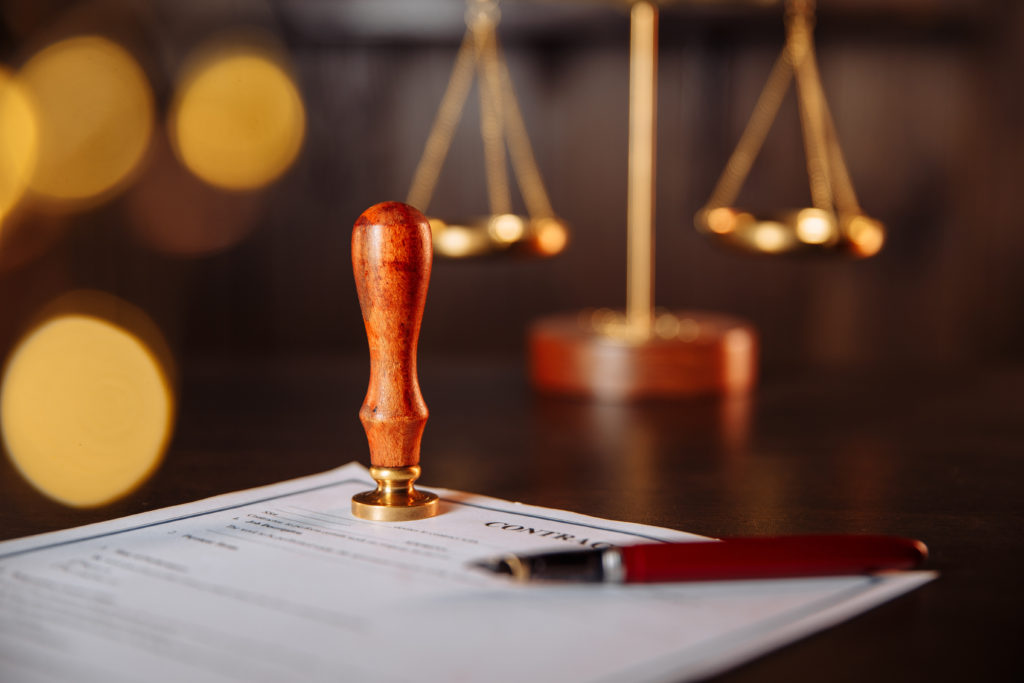The development of telegraphy brought about the same types of dispute that occur in the era of the internet, and judges were required then, as now, to adapt old laws to new technologies. Exchanges of telegrams generally held to provide evidence of intent to contract within the relevant statute of frauds. Documents sent by facsimile transmission have also generally been accepted in common law jurisdictions. There have been cases where judges have implied that a document has been signed even in the absence of a manuscript signature, where there is sufficient evidence to show the person signing the document adopted the content. Many bureaucratic processes have forms requiring signatures, where there may be no legal authority or requirement for a signature (see e.g. Wynn & Israel 2018). Manuscript signatures have been forged. To test both the validity and the effectiveness of a manuscript signature, various jurisdictions have required the signatures on some classes of documents (e.g., wills, land conveyances, high value contracts, etc.) to be affixed in the presence of a witness or an authorized official, such as a notary. The function of the witness or notary is to provide additional evidence assuring the validity of the signature on the document. This generally requires that witnesses or notaries be independent and have no conflicts of interest (e.g., medical staff witnessing patient legal documents (Starr 2016)). Witnesses and notarial acts are generally required to authenticate a signature for legal purposes.

Sometimes there is a legal need for some form of official to authenticate a document, e.g., for a document to be accepted in some foreign legal processes. Georgia has two separate and distinct state agencies authorized[1] to authenticate documents for use by foreign countries etc. If the document authentication is going to a foreign country that is a participant in Hague Treaty Convention then obtain an Apostille via Georgia Superior Court Clerks. If the document authentication is going to a foreign country that is not a participant in Hague Treaty Convention then authenticate via the Georgia Secretary of State with a Great Seal Certification. For domestic use, a notarial act with Certification of notary public. (Certificate of authority from County court that Notary is authorized by the county) is generally sufficient.
Signatures for legal entities
Legal entities (Companies, LLCs, partnerships, etc.) have many of the same rights and obligations of natural persons that may include a need for a signature e.g., to enter into binding contracts, to endorse government required documents. When signing for the corporation, a simple signature line with the name of the corporate officer is not the legally acceptable method for signature; instead, the signature must be presented in a signature block with the name of the corporation and the name, title and signature of a corporate officer.
Legal entities can have their own signatures distinct from a natural person. Most states have enabled a Company Seal in their statutes enabling corporations. Generally, the Company Seal acts as a signature executing a document on behalf of the corporation, but see
The seal of the corporation may be affixed to any document executed by the corporation, but the absence of the seal shall not itself impair the validity of the document or of any action taken in pursuance thereof or in reliance thereon. .
(O.C.G.A. 14-3-846 (c))
In many cases the Company Seal alone is insufficient evidence for company endorsement actions. Execution of instruments conveying interest in real property or releasing security agreements requires natural person signatures, often two signatures (e.g., Company President and Company Secretary). The Company Seal is not necessary. (O.C.G.A. 14-5-7 (2010))
When a corporation is doing business, it must duly authorize each transaction. Entering contracts, concluding loans and endorsing checks or drafts all require the signature of a corporate officer with the authority to conduct business transactions on behalf of the company. Determining what constitutes a legal signature for a corporation may involve reading the bylaws, securing a board resolution or requesting some other certification of authority. Board resolutions also may give general authority to act on behalf of the corporation or more limited powers to transact business. (e.g., a schedule of authorizations). In some instances, illegal signatures will bind a corporation to protect the interests of innocent third parties. Apparent authority may also exist if two officers of the same corporation, such as the secretary and president, endorse an instrument. Bylaws and board resolutions are not filed with the Secretary of State in the state of incorporation, so you may have to request a copy from the corporation itself.
Notarial acts on signatures
For Notary Law in Georgia, see generally, O.C.G.A. 45-17-1 (2010). Notaries Public have authority anywhere within the State of Georgia to:
- Witness or attest signature or execution of deeds and other written instruments;
- Take acknowledgments;
- Administer oaths and affirmations in all matters incidental to their duties as commercial officers and all other oaths and affirmations which are not by law required to be administered by a particular officer;
- Witness affidavits upon oath or affirmation;
- Take verifications upon oath or affirmation;
- Make certified copies, provided that the document presented for copying is an original document and is neither a public record nor a publicly recorded document, certified copies of which are available from an official source other than a notary; and provided that the document was photocopied under supervision of the notary; and
- Perform such other acts as notaries are authorized to perform by the laws of the State of Georgia.
A “notarial act” means any act that a notary is authorized to perform and includes, without limitation, attestation, the taking of an acknowledgment, the administration of an oath or affirmation, the taking of a verification upon an oath or affirmation, and the certification of a copy. All notarial acts must be accompanied by the Notary’s seal. “Attesting” and “attestation” are synonymous and mean the notarial act of witnessing or attesting a signature or execution of a deed or other written instrument, where such notarial act does not involve the taking of an acknowledgment, the administering of an oath or affirmation, the taking of a verification, or the certification of a copy. “Notarial certificate” means the notary’s documentation of a notarial act.
Notaries are commissioned for a four-year term by the Clerk of Superior Court in their county. Requirements are generally age, legal residency of the state (or bordering state, but employed in GA), be able to read and write English. The process[2] in GA requires an application form, fee, oath of office, notary seal.
The advent of COVID-19 has accelerated a trend towards electronic signatures and records. Groups like the Electronic Signature and Records Association[3] have been promoting uniform statutes and rules in areas such as eNotary, IRS eSignature policy, Electronic Will legislation, Blockchain, etc. Remote Online Notaries (RON) have been enabled in many states[4] as a result of the COVID-19 outbreak. This authorization may be via RON legislation or emergency authorizations by State Authorities. For example, in Arizona, ARS 44-7011 allows completion of notarial act on an electronic message or document without imprint of notary seal. In Georgia, the Executive Order[5] by Governor Kemp (dated 3/31/2020) authorizes use of real time audiovisual communications for notarizations.
Legislative activity is often broadly framed so as to enable a variety of technical and commercial solutions to evolve. Public Key cryptography has emerged as a technology with widespread commercial adoption. Other technologies like blockchains build on public key cryptography to enable larger systems. Cryptography research also continues to enable new capabilities in fields like security and privacy; but also more specifically relevant to signature process roles like witnesses and notaries.
References
Starr, K. T. (2016). Should you witness a signature on a patient’s personal legal document?. Nursing2019, 46(12), 14.
Wynn, L. L., & Israel, M. (2018). The fetishes of consent: Signatures, paper, and writing in research ethics review. American Anthropologist, 120(4), 795-806.
[1] https://www.gsccca.org/notary-and-apostilles/apostilles/general-apostille-information
[2] https://www.gsccca.org/notary-and-apostilles/notaries/notary-public-application
[4] https://www.nationalnotary.org/notary-bulletin/blog/2020/03/states-emergency-action-remote-notarization#:~:text=Effective%20March%2031%2C%20an%20executive,related%20to%20real%20estate%20transactions.
[5] https://gov.georgia.gov/document/2020-executive-order/03312001/download
